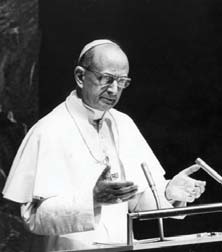Memorial Day and Thoughts of Peace
When I was in elementary school I remember how around Memorial Day each year a veteran of grandfatherly age would come and speak to a school assembly in order to explain the significance of this holiday (that it wasn’t just a fun day off from school). I particularly remember the year a man who was a veteran of World War I spoke to us and said that when he was a boy Memorial Day was the day to remember those who had died in the Civil War. Then he added matter-of-factly, “But since then we’ve had many other wars.” That image of war following upon war made a deep impression on me.
The spectre of war is before as we prepare once again to honor the memory of our nation’s wardead on Memorial Day. This is the first Memorial Day since the Taliban’s re-conquest of Afghanistan last summer, bringing a close to the 20 years of U.S. intervention which, considered as a foreign policy venture, ranks as an abject failure. The Russian war of aggression on Ukraine, now four months old, rightly fills the world with fear for what wider effects it might unleash. Once the “dogs of war” have been let loose, it is not so easy to call them back. Warmaking has its own terrible internal laws of selfperpetuation and escalation.
This is a good moment of the year then to review our Catholic teaching on the moral duty of avoiding war and of working for peace. We read in the Catechism of the Catholic Church:
Injustice, excessive economic or social inequalities, envy, distrust, and pride raging among men and nations constantly threaten peace and cause wars. Everything done to overcome these disorders contributes to building up peace and avoiding war. (Par. 2317)
The Catechism then goes on to cite Par. 78 from the Vatican II document Gaudium et Spes (The Church in the Modern World)
Insofar as men are sinners, the threat of war hangs over them and will so continue until Christ comes again; but insofar as they can vanquish sin by coming together in charity, violence itself will be vanquished and these words will be fulfilled: “They shall beat their swords into ploughshares, and their spears into pruning hooks; nation shall not lift up sword against nation, neither shall they learn war anymore.” (Isaias 2:4)
On October 4th, 1965, Pope Paul VI addressed the United Nations General Assembly in New York. He uttered the memorable words: “No more war! War never again!”
What the Pope said that day to the UN delegates are words to hear for all leaders and those who have a say in crafting public policy, as well as to all men of good will:
If you wish to be brothers, let the weapons fall from your hands. One cannot love with offensive weapons in his hands. Those weapons, especially the terrible weapons that modern science has given you, long before they produce victims and ruins, cause bad dreams, foster bad feelings, create nightmares, distrust and somber resolves; they demand enormous expenditures; they obstruct projects of solidarity and useful work; they falsify the very psychology of peoples. As long as man remains that weak, changeable and even wicked being that he often shows himself to be, defensive arms will, unfortunately, be necessary. As for you, however, your courage and your work impel you to study ways of guaranteeing the security of international life without recourse to arms. This is an aim worthy of your efforts; this is what the peoples of the world expect of you; this is what you must achieve.

